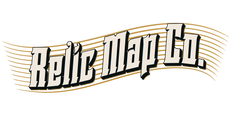Map of the City and Bay of Cartagena De Las Indias. (Plano De La Cyudad Y Bahya De Cartagena De Las Yndias Situado a Los 300 Gs. 41 Ms De Longytud Prymer Merydo. El Pyco De Teneryfe Y 10 Grs 27 Ms. De Latytud Boreal En El Nuevo Reyno De Granada. Levan...
- Regular price
-
$29.95 - Regular price
-
$29.95 - Sale price
-
$29.95
Ships for FREE
Limited Time: Buy one map, get one map 50% off! Discount shown in cart.
Couldn't load pickup availability
90-Day Satisfaction Guarantee, Free Returns & Lifetime Warranty
About This Map
Discover the timeless beauty of our fine art quality printed reproduction of this antique map. Perfect for history enthusiasts, collectors, and interior decorators.
Restored with meticulous attention to detail by our team with over a decade of experience, this stunning reproduction captures the intricate artistry and historical significance of the original map.
Whether you're a collector or seeking a unique decor piece, this archival-quality map reproduction is a timeless addition to any space. Order now to bring history to life!
Old map of Bolívar, Cartagena, Colombia.colored pen-and-ink manuscript map was drawn by Antonio de Ulloa (1716--95) in 1735, based on an earlier map by Juan de Herrera dating from around 1721. It shows in great detail the bay of Cartagena de Indias and the adjacent coastal area of the present-day city of Cartagena, Colombia. The territory was then part of the Viceroyalty of New Granada in the Spanish Empire. The map is oriented by a compass rose with north pointing to the left. Longitude is set in relation to the Royal Astronomical Observatory at Tenerife in the Canary Islands. Soundings and fathom lines indicate the depth of the sea bottom for navigation. Also shown are roads and forests. The title, author, and scale of the map are given in the upper right, on a pedestal flanked by figures of Indians. Ulloa was a Spanish naval officer, who in 1735 was appointed a member of the scientific expedition to Peru organized by the French Academy of Sciences. He spent nearly a decade in South America with the expedition. Ulloa was en route back to Spain in 1745 when the ship on which he was traveling was captured by the British. He was taken as a prisoner to England, where he spent a number of years. He gained the respect and friendship of many leading English scientists and was made a Fellow of the Royal Society in London. He eventually was allowed to return to Spain and in 1784 published Relación histórica del viaje á la América Meridional, a detailed account of the people, geography, and natural history of South America based on his research on the continent. This map may have been the original of the one that appears in Ulloa's Relación. The noted Spanish cartographer Tomás López (1730--1802) also used Ulloa's map for his later chart of the bay and city of Cartagena.
Created by Juan De Herrera Y Sotomayor, Antonio De Ulloa in 1735.
- Title devised, in English, by Library staff.
- "Scale ca. 1:25,000. 4,000 Castilian varas = 12 centimeters.10,000 Rhine feet = 10.9 centimeters"--Note extracted from World Digital Library.
- Original resource extent: 1 manuscript nautical chart, color ; 46 x 69.5 centimeters.
- Original resource at: National Library of Spain.
- Content in Spanish.
- Description based on data extracted from World Digital Library, which may be extracted from partner institutions.
Map Tags
1721 To 1735
1735
Antonio De Ulloa
Bolívar
Cartagena
Colombia
Juan De Herrera Y Sotomayor
Manuscript Maps
Map
Nautical Charts

- For the best legibility, order your map in the original size or larger. Most maps have intricate detail and small text that is best appreciated when the print size hasn't been reduced.
- Sizes labeled "Fits a Standard Frame" will drop right into any frame that you purchase in that size. The sizes that we offer are commonly available online and at most retail stores.
- Our standard sizes are recommendations based on the aspect ratio of the original map, but still may require some added "white space" in one dimension to fit.
- Non-standard sizes will require custom framing, and we suggest taking your print to the frame shop of your choice after you receive it for the best results.
- Custom sizes are available, simply contact us for a quote.
Below is an approximation of the scale of a few standard sizes, and how they might appear in your space.





